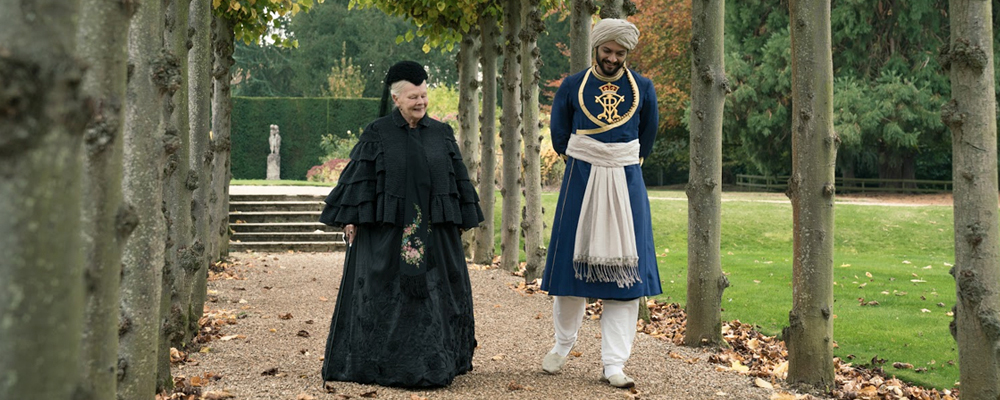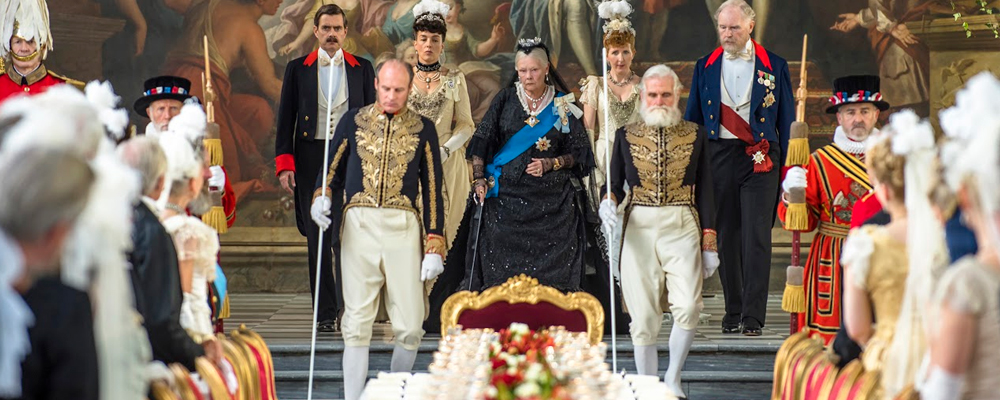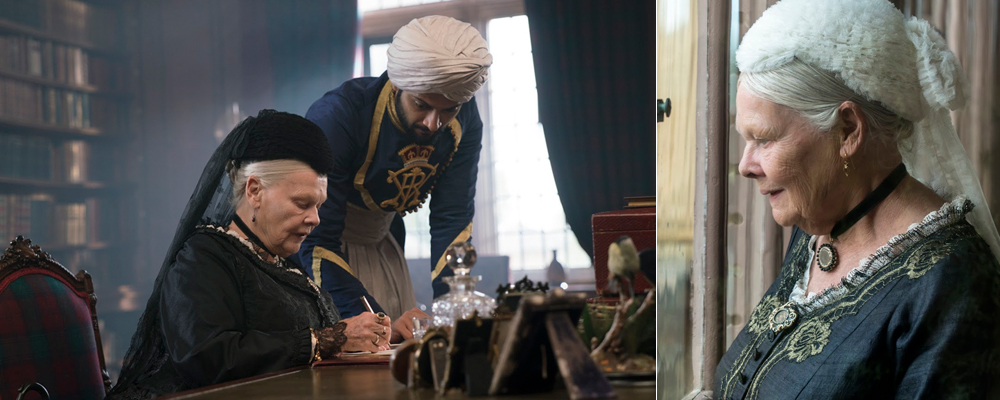Judi Dench Taps Into Queen Victoria’s Sorrow and Firey Spirit in ‘Victoria & Abdul’
Sandra Miska
20 years after she first stepped into the role of Queen Victoria in John Madden’s “Mrs. Brown,” Judi Dench again dons the black gowns to portray the formidable British monarch in Stephen Frears’ “Victoria & Abdul.” Once again, Dench’s Victoria causes an uproar for her close relationship with a servant, this time around with a Muslim man from India of humble origins, Abdul Karim (Ali Fazal). Fazal, who got his start in Bollywood, plays the wide-eyed young man who, because of his tall height, is chosen to travel from Agra, Indian to England to present a medal to Victoria, who was named the Empress of India despite never having set foot in that country. A second man, Mohammed (Adeel Akhtar), is sent with him, and while he is less than thrilled at a task that involves him bowing to his country’s oppressors, Abdul is more enthusiastic, and almost immediately his sweet nature and handsome looks catch the eye of the most powerful woman in the world.
Although the age that bears her name is associated with formality and rigidness, Victoria herself wasn’t as stuffy as most people think. For one, she had a passionate marriage with Prince Albert and loved sex, as we know from her journal entries and other tidbits, such as the time after years of childbearing when she asked her doctor if there was anyway she could “have fun” in bed without the risk of another pregnancy. She also, as Frears shows us here, had little patience for the long, drawn-out ceremonies that were a daily part of court life. The arrival of Abdul offers her a repose from her humdrum life, not in the least because he dares to engage her in conversation as if she were his peer. Flouting societal reviews about class and order, she rapidly promotes her new favorite, who is not only a lowborn but also a Muslim, rustling feathers among those in her household, including racist Lord Salisbury (Michael Gambon), haughty Lady Churchill (Olivia Williams), and the most odious of them all, her pompous son Prince Bertie (Eddie Izzard), the future Edward VII.
Dench, who at 82 is one of our greatest living actresses, really taps into Victoria’s sadness here, as the queen in her twilight years was pretty lonely, despite ruling over a vast empire that contained a billion citizens. “Everyone I have loved has died and I just go on and on,” she says with such sorrow, channeling the pain Victoria felt over the loss of Albert, her dear friend John Brown, and countless others. She also displays the fire in the queen, as she outmaneuvers her power-hungry son and others at every turn, standing by her conviction that Abdul, who she comes to call the “Munshi,” a word for teacher, is better than the rest of them. As for Fazal, he never lets up on the charm and optimism, even when he is keeping things from the queen, although he aptly conveys that Abdul’s affection for her is genuine. Izzard, a stand-up comedian, is also great here as the villain, particularly during one memorable scene involving Mohamed pretty much telling him to go to hell.
Although the sun set on her majesty’s empire a long time again (India gained independence from British rule 1947), the film touches on problems that face society today, such as Islamophobia and the fear of powerful women. One does not have to be a history buff to enjoy this platonic love story that celebrates friendship and kindred spirits finding each other in unlikely places.
“Victoria & Abdul” opens Sept. 22 in Los Angeles and New York with a national release to follow.



